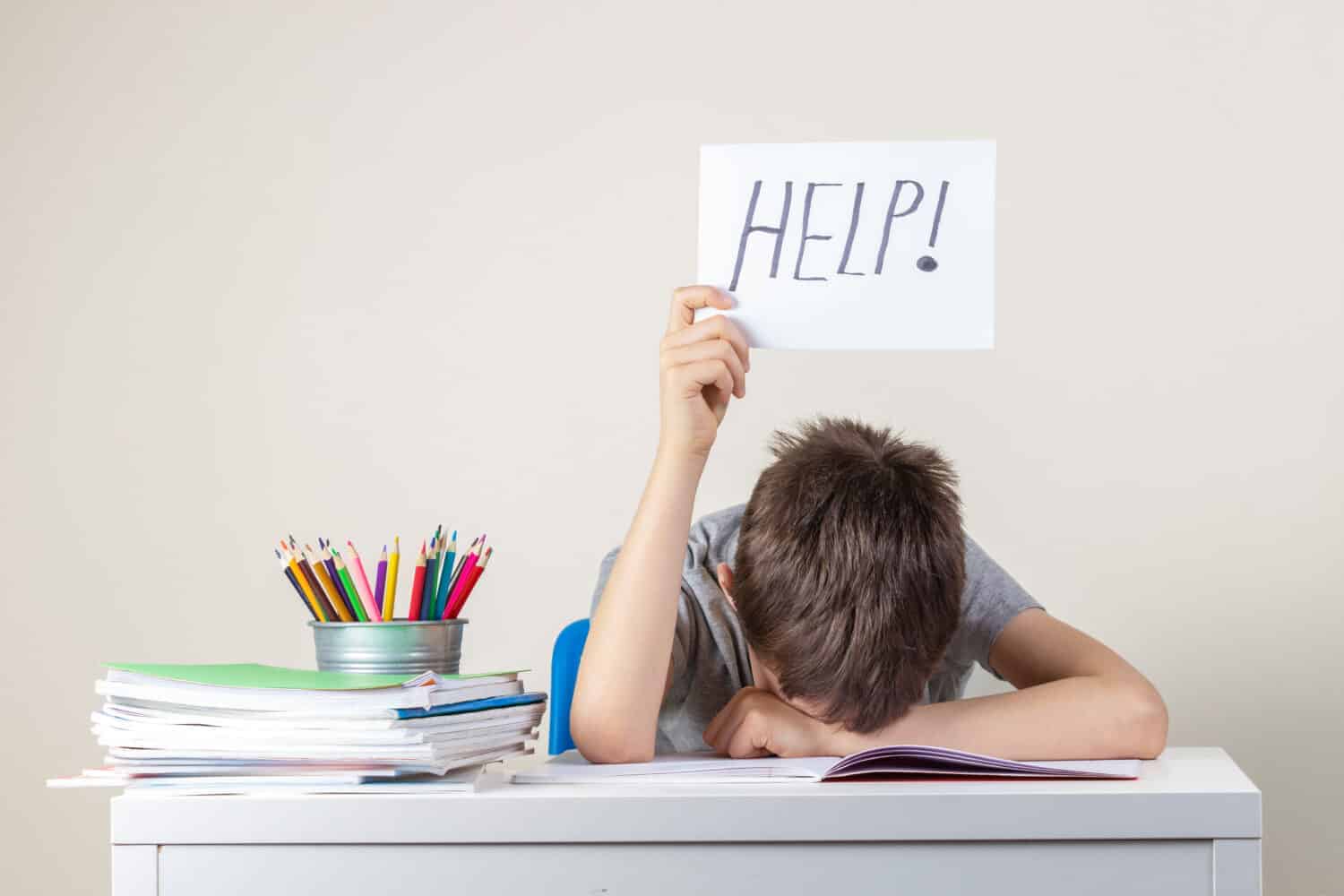I remember watching my five-year-old at his first gymnastics class. When the teacher told them to skip across the mat, he had no idea how to do that. For the first time, I shockingly realized that I had to actually TEACH my child how to skip. Fast forward to his first job when he turned 16, and his manager mentioned that she had to teach him how to sweep a floor. I was flabbergasted because, in my mind, these were just skills kids came with. As the other kids came along, I vowed to make sure they knew all the skills they needed before they left the house. To help you prepare your kids for life after home, I’ve put together a list of those skills and ways to intentionally teach them.
Clothing & Hygiene

©razyph / Getty Images
If you’ve ever had a teenager, you know that fight that comes with getting them to brush their teeth twice a day, or to shower regularly. They often think that slipping on a new shirt and combing their hair is enough for the day, but as hard as it is, it’s our job as parents to teach them better.
Set a schedule with them for how often they will bathe or shower, and teach them about basic things like deodorant and dandruff. Make sure you leave the door open so they can communicate with you if they have questions. Teach them how to plan their outfits for the weather and how to do laundry on their own when they’re ready. Help them understand how important washing their face is. Oh, and one last one — teach them to clip their nails regularly.
It’s difficult, but if your child tries to walk out the door and their smell indicates they need a shower, it’s your job to tell them before they leave. If they have food in their teeth and it’s obvious they haven’t brushed, you need to let them know. Approach it cautiously and come up with a solution, because no kid wants to hear they need a shower right before they enter school, where they’ll worry about it all day.
Time Management

©Den Rozhnovsky/Shutterstock.com
This one’s hard because even adults struggle with time management, and your kids are likely to mimic your habits. Good time management reduces stress and anxiety and makes them more productive. It helps them in every activity they participate in and affects more than academics and work.
Every child is different, so your teaching methods need to adjust. They’ll also manage time differently and prefer unique ways to be organized. Some may prefer a checklist while others shouldn’t be over-scheduled. Keep the dialogue open between your child as they age to help them determine the best way to manage their time. This is especially important when they become teenagers, as they are about to head out on their own.
Handling Failure

©Veja/Shutterstock.com
While there are messages everywhere that you can become anything you want if you work hard enough, the reality is that most kids are just people who will face achievements and failures throughout their lives. How they deal with those things is a huge part of their character. Some kids become withdrawn and angry when they’re disappointed, while others may turn to hyper-achievement.
Junior high and high school are places where it’s important to learn to deal with failure. They may not make every sports team they try out for, may not get every job they apply for, and may be rejected by friends at times. The key to this is teaching them how their “failures” teach them things and give them opportunities to grow. Help them understand that failure doesn’t define them. As they move on and recover from certain failures, remind them how they felt when it happened and how they came out of it. This will help them in the future as they face similar problems, and give them hope that they will recover one day.
Financial Literacy

©pathdoc/Shutterstock.com
There comes a time when credit scores and bank accounts are important to teenagers. It’s important that they learn how to earn money, how to budget it, and how to responsibly spend it. While schools make an effort to teach financial literacy to students, the real responsibility lies with parents. Paying rent and tuition is difficult, and shouldn’t be the first financial situation your kids face.
Start early with basic financial concepts. Teach budgeting and set savings goals with them. Use real-life examples when you’re grocery shopping or buying new furniture. When they’re young, give them an allowance with clear directives and boundaries. Encourage them to work when they can so they can know the sense of achievement that comes with earning their own money. Push them to come up with creative ways to earn money like selling used clothing on reseller sites, babysitting, or mowing lawns. And while it can be difficult, sometimes they need to struggle to remember how important a job is and how much they enjoy having their own money to spend.
Interpersonal Communication

©iStock.com/fizkes
Communication styles are crucial to relationships. If your child learns the wrong way to communicate, it can affect their entire life. Teaching your kids how to communicate early means they avoid bad habits and misunderstandings that affect school, friendships, and the workplace.
Each child’s communication style is different, but there are basic facets of healthy communication you can teach them. Teach them to make eye contact when appropriate. Discuss emotions and how to respond to them. Teach them the difference between sympathy and empathy, and how to handle those feelings. Be a good role model for your kids with your own communication and mimic the behavior you teach them. At the same time, understand their limitations based on age, personality, and learning ability. Teach them how to actively listen and be invested in what others are saying.
If your child has a disability, tailor your lessons to their ability. Eye contact is difficult for some kids while others can’t put emotion into words. Be patient with them as they learn the best ways to communicate.
Critical Thinking

©MillaF/Shutterstock.com
The new generation of kids has access to more information than they know what to do with. This can make it difficult to sort through the noise and figure out what’s true and what’s not. As media engages and people become more polarized, it’s more important than ever to understand how to think critically and decide for themselves what is real.
Teach your children what sources are reliable and which are not. Ask them open-ended questions and have a conversation with them about the answers and how they came to them. Open up difficult topics and be willing to take the time to talk to them. Encourage them to read from different sources and learn how to debate healthily. When they’re asked to debate, they have to deep dive into an issue and learn more about it.
Encourage creativity and new ways of thinking. Look for diverse perspectives where you can find them and teach your kids why they’re valuable. When they have problems or questions, don’t intervene immediately, but give them time to find answers and solutions on their own, and then discuss that with them.
When to Change the Sheets and More

©Elizaveta Galitckaia/Shutterstock.com
There are many basic life skills and housekeeping tasks kids don’t automatically know. How to make basic meals, how often to change their bedding, how often to vacuum, how to sort laundry piles, and when to clean a bathroom, are some pretty simple examples. Before your kids leave the house, make sure they understand the intricate tasks that make a household run.
The best way to do this is to engage your kids in everyday activities and tasks from the time they’re young. If you didn’t start young, don’t worry. It’s never too late to teach a kid how to scrub a toilet or make spaghetti. Make an intentional effort to involve them and it’s often a positive learning experience for both of you.
The image featured at the top of this post is ©Alena Ozerova/Shutterstock.com.
